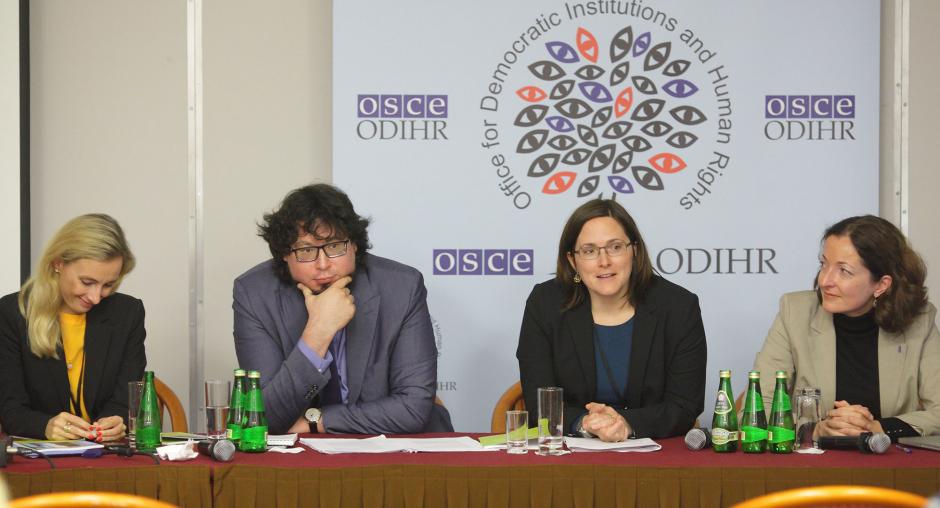OSCE/ODIHR and High Commissioner on National Minorities publish handbook on advancing national minorities’ involvement in electoral processes

The OSCE Office for Democratic Institutions and Human Rights (ODIHR) and the office of the OSCE High Commissioner on National Minorities (HCNM) presented their Handbook on Observing and Promoting the Participation of National Minorities in Electoral Processes at a side event on the first day of the Human Dimension Implementation Meeting in Warsaw on 22 September 2014.
The handbook was produced to provide guidance both to experts focusing on national minority participation by analysing factors impacting their inclusion and representation, and to observers monitoring the electoral processes. It outlines steps and aspects that need to be considered in order to carry out a comprehensive minority participation assessment and provide recommendations for improvements.
“Laws in many OSCE participating States contain general non-discrimination provisions and some states have introduced special measures to facilitate minority participation and representation,” said Nicola Schmidt, Deputy Head of the ODIHR Elections Department. “However, legal obstacles are still encountered, as is malpractice, such as undue influence on minority voters or a lack of voter education materials in minority languages.”
During the event, participants exchanged ideas on advancing national minorities’ participation in elections within the OSCE region, including the impact of various electoral set ups and practices on the exercise of suffrage rights by minority voters and on other rights by candidates standing in elections.
Dmitry Nurumov, HCNM Senior Adviser, said: “Whatever the design of the electoral systems, states should ensure that systems do not discriminate against minorities and are conducive to their full and effective participation in public life.”
Within its mandate for comprehensive election observation, ODIHR analyses the conditions for minorities’ electoral participation, their actual involvement, and any obstacles in law or practice in OSCE participating States that restrict or bar them from full and effective participation.
As a specialized institution mandated to deal with broader minority-related issues with the aim to identify and address potential causes of ethnic tensions and conflicts at the earliest possible stage, the HCNM is ODIHR’s partner in this thematic area of observation.
